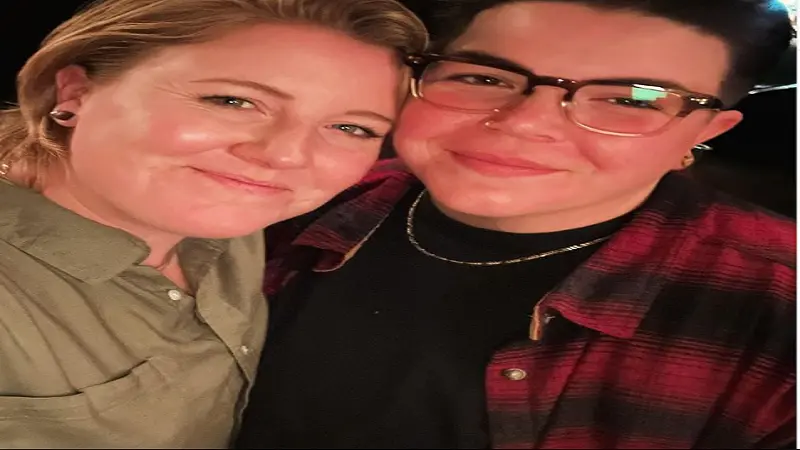In an era defined by digital connectivity and pervasive social media, the boundary between public and private life has become increasingly blurred. This dynamic is starkly illustrated by incidents involving the unauthorized distribution of personal content, a phenomenon often referred to as a “leak.” One recent example that has garnered significant attention involves Mikayla Campinos Leaked, a prominent social media influencer whose private content was leaked online. This article aims to explore the ethical, legal, and societal implications of such privacy breaches, focusing on the case of MMikayla Campinos Leaked.
The Rise of Mikayla Campinos Leaked
Mikayla Campinos Leaked is a well-known figure in the social media landscape, particularly on platforms like TikTok and Instagram. Her rise to fame can be attributed to her engaging content, which often includes lifestyle tips, beauty advice, and personal vlogs. With millions of followers, Mikayla has cultivated a significant online presence, becoming a role model for many young individuals. However, her public visibility has also made her a target for privacy invasions.
The Incident: What Happened?
The phrase “Mikayla Campinos leaked” refers to the unauthorized release of private content belonging to Mikayla Campinos Leaked. This incident is part of a broader pattern where individuals, often women, have their private photos or videos distributed without their consent. Such leaks are typically executed by hackers or individuals with malicious intent, aiming to exploit the victim’s private life for various reasons, including financial gain, revenge, or simply to cause distress.
In Mikayla Campinos Leaked’s case, the leaked content included personal photos and videos that were never intended for public consumption. The unauthorized release of this material has had a profound impact on her personal and professional life, raising critical questions about privacy, consent, and the ethical responsibilities of both individuals and tech companies.
The Ethical Implications
The ethical issues surrounding privacy breaches are multifaceted and complex. At the core is the fundamental right to privacy, which is enshrined in various international human rights instruments. Privacy is essential for the development of personal autonomy and human dignity. When this right is violated, as in the case of Mikayla Campinos Leaked, the repercussions can be severe.
Consent and Autonomy
One of the primary ethical concerns is the violation of consent. Mikayla Campinos Leaked’s private content was shared without her permission, stripping her of control over her personal information. This breach of consent undermines her autonomy and agency, highlighting the importance of respecting individuals’ rights to control their data.
Impact on Mental Health
The psychological toll of such leaks can be devastating. Victims often experience anxiety, depression, and a sense of violation. For public figures like Mikayla Campinos Leaked, the constant scrutiny and potential for public shaming can exacerbate these effects. The incident underscores the need for greater awareness and support for mental health issues arising from digital privacy violations.
Responsibility of Tech Platforms
Social media platforms and tech companies play a crucial role in safeguarding user privacy. The ease with which private content can be leaked and disseminated calls into question the effectiveness of existing security measures. Platforms have an ethical responsibility to implement robust security protocols and provide users with tools to protect their privacy. Additionally, they must respond swiftly to remove unauthorized content and support affected users.
The Legal Landscape
The legal implications of privacy breaches are equally significant. While laws vary by jurisdiction, many countries have enacted legislation to protect individuals from such invasions of privacy. However, enforcement remains a challenge, particularly in the digital realm where content can be rapidly shared across borders.
Data Protection Laws
In many regions, data protection laws provide a legal framework to address privacy violations. For instance, the European Union’s General Data Protection Regulation (GDPR) sets stringent requirements for the handling of personal data, including the right to privacy and the right to be forgotten. In the United States, various federal and state laws aim to protect personal information, though the regulatory landscape is more fragmented.
Legal Recourse for Victims
Victims of privacy breaches, like Mikayla Campinos Leaked, have several avenues for legal recourse. They can pursue civil litigation to seek damages for the harm caused by the unauthorized distribution of their private content. Additionally, criminal charges can be brought against individuals responsible for hacking or distributing the material. However, the effectiveness of these measures depends on the ability to identify and prosecute the perpetrators, which is often complicated by the anonymity afforded by the internet.
Role of International Cooperation
Given the global nature of the internet, international cooperation is crucial in addressing privacy breaches. Collaborative efforts between governments, law enforcement agencies, and tech companies are necessary to track down offenders and enforce legal protections. Initiatives like the Budapest Convention on Cybercrime provide a framework for such cooperation, but more needs to be done to ensure comprehensive protection.
Societal Impact and the Path Forward
The leak of Mikayla Campinos Leaked’ private content is not an isolated incident but part of a broader societal issue. It reflects the vulnerabilities inherent in our digital age and the need for a collective effort to protect individuals’ privacy.
Public Awareness and Education
Raising public awareness about the ethical and legal aspects of privacy breaches is essential. Education campaigns can help individuals understand the importance of privacy and the risks associated with sharing personal information online. Additionally, fostering a culture of respect and empathy can mitigate the stigma and victim-blaming often associated with such incidents.
Strengthening Legal Protections
Strengthening legal protections for privacy is crucial. Legislators must continually adapt laws to address emerging threats and ensure that they provide robust safeguards for individuals’ data. This includes enhancing penalties for privacy violations and improving mechanisms for enforcement.
Empowering Individuals
Empowering individuals with the tools and knowledge to protect their privacy is equally important. This includes promoting the use of strong passwords, enabling two-factor authentication, and being mindful of the information shared online. By taking proactive steps, individuals can reduce their risk of falling victim to privacy breaches.
Conclusion
The case of Mikayla Campinos Leaked highlights the pervasive and pernicious nature of privacy breaches in the digital age. It underscores the urgent need for a multifaceted approach that combines ethical responsibility, legal protections, and societal awareness to address this issue. As we navigate the complexities of our interconnected world, it is imperative to uphold the principles of privacy and consent, ensuring that individuals retain control over their personal information. Only through concerted efforts can we create a safer and more respectful digital environment for all. See More




